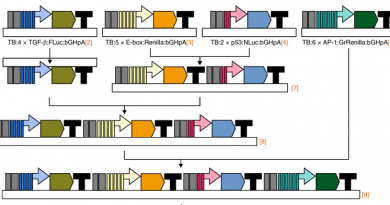The genetic diversity in Africa is greater than in any other region in the world
Looking at a subset of HIV-positive children from Botswana, an international team of researchers, co-led by scientists from Baylor College of Medicine, characterized the genetic variation of the population and gained insight into genetic variations that may be important to disease progression.

“Our study, one of the first data-driven, population-based genomic studies among African populations, found significant diversity in the genetic makeup of a population from the southern region of the African continent,” said Dr. Neil Hanchard, assistant professor of molecular and human genetics at Baylor. “This study demonstrates the need to get a better handle on the genomic makeup of the continent and its individual countries, because this population is just the tip of the iceberg.”

The comparison of whole exome sequencing data from 164 Batswana and 150 similarly sequenced HIV-positive Ugandan children revealed that 13 to 25 percent of the variations observed among Batswana had not been previously captured or recorded in public databases.
Hanchard and the research team were surprised by the amount of undocumented information they found, leading to two key takeaways from the study.
“Firstly, this study demonstrates the breadth of variation throughout the continent, which is also observed across more than one particular region – more and more variation is being discovered as we look at other populations and groups,” Hanchard said. “Secondly, through this research, we have developed a greater appreciation for the challenges and opportunities of doing genomic research in Africa.”
Not only was it discovered that the Batswana are genetically unique, but there are also higher levels of similarity among the group that are not seen in other populations. This may make it easier to map genes related to HIV in this population.
“The genetic structure of subcultures in Southern Africa is highly complex and diverse, which clearly shows that we cannot rely solely on single small samples of ethnic, tribal or lingual groups to categorize such diverse populations or reliably inform study design,” Hanchard said.
African populations are largely underrepresented in genetic research, but they face an elevated burden of disease. Characterizing genome variation across communities will provide a greater understanding of population movement and shape the future genomic studies on the continent,” Hanchard said.

“The genetic diversity in Africa is greater than in any other region in the world, and accurate mapping and identification of new disease loci can be confounded without an appropriate understanding of this diversity. This is the first study that has examined genome structure in the Batswana and will be invaluable to future efforts to understand the genetic basis of human disease,” said Dr. Graeme Mardon, James R. Davis Chair in Pathology and professor of pathology and immunology and member of the Dan L Duncan Comprehensive Cancer Center at Baylor.
This study is the result of a unique collaborative effort sponsored by the National Institutes of Health and the Wellcome Trust in the UK to bring genomics to Africa. The research was conducted by trainees from Uganda and Botswana who spent two years at Baylor analyzing the data and learning genomics and involved a close collaboration with academic health science centers and universities in Uganda and Botswana, where the grant is centered.
Learn all the details of this study in the American Journal of Human Genetics.
This work was funded by the National Institutes of Health and the Center for Globalization at Baylor. See a full list of authors and their affiliations.



